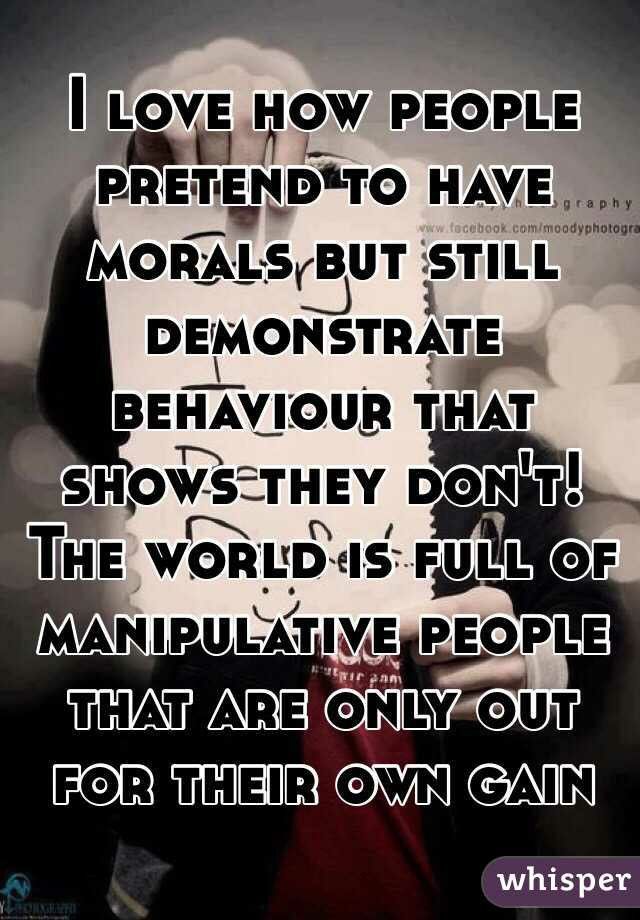In a world where communication is key, the power of words can sway opinions, evoke emotions, and manipulate actions. Selfish manipulative quotes serve as a stark reminder of how language can be weaponized to serve personal interests at the expense of others. These quotes often reflect a deeper understanding of human psychology, showcasing the lengths to which some individuals will go to achieve their desires. By examining these quotes, we can better understand the dynamics of selfishness and manipulation that exist in our society.
Understanding the implications of selfish manipulative quotes can help individuals become more aware of the tactics used by those around them. Whether in personal relationships, professional environments, or social circles, recognizing the signs of manipulation is crucial for maintaining healthy boundaries. Moreover, these quotes often reveal the underlying motivations of individuals who prioritize their own needs over the well-being of others, prompting us to reflect on our own behaviors and motivations.
As we delve into the world of selfish manipulative quotes, we will explore their origins, meanings, and the impact they have on our lives. From famous figures to everyday individuals, the words we choose can leave lasting impressions, shaping perceptions and influencing decisions. Join us as we navigate through this intricate web of language and intent, shedding light on the darker side of human interaction.
What are Selfish Manipulative Quotes?
Selfish manipulative quotes are statements that reflect a self-serving attitude or behavior, often used to influence or control others. They can embody various themes, such as emotional blackmail, guilt-tripping, or even flattery, and are often uttered with the intention of achieving a specific goal at the expense of someone else's feelings or needs. Understanding these quotes can provide insight into the motivations of individuals who employ such tactics.
How Do Selfish Manipulative Quotes Affect Relationships?
In relationships, selfish manipulative quotes can create an imbalance of power, leading to feelings of resentment and mistrust. When one person consistently uses manipulation to get their way, it can erode the foundation of love and respect that is essential for a healthy partnership. Recognizing these quotes can help individuals identify unhealthy patterns and take steps to address them.
Can You Identify Selfish Manipulative Quotes in Popular Culture?
Many selfish manipulative quotes have permeated popular culture, often attributed to fictional characters, celebrities, or public figures. These quotes can range from humorous to profoundly unsettling, illustrating the various ways in which manipulation manifests in our lives. By examining these examples, we can better understand the broader implications of selfishness and manipulation in society.
Who Are Some Influential Figures Known for Their Selfish Manipulative Quotes?
Throughout history, various figures have been associated with selfish manipulative quotes, whether in literature, politics, or entertainment. These individuals often used their words to exert control or influence over others, showcasing the darker side of human nature. Here, we will explore a few notable examples.
| Name | Occupation | Known For | Famous Quote |
|---|---|---|---|
| Niccolò Machiavelli | Philosopher | Political manipulation | "The ends justify the means." |
| Oscar Wilde | Writer | Wit and manipulation | "The only thing worse than being talked about is not being talked about." |
| Donald Trump | Businessman/Politician | Controversial remarks | "I could stand in the middle of Fifth Avenue and shoot somebody, and I wouldn't lose voters." |
What Can We Learn from Selfish Manipulative Quotes?
By analyzing selfish manipulative quotes, we can gain valuable insights into human behavior and the consequences of manipulation. These quotes serve as cautionary tales, reminding us of the importance of empathy, honesty, and integrity in our interactions with others. Recognizing the signs of manipulation can empower individuals to set boundaries and protect themselves from being exploited.
How Can We Protect Ourselves from Manipulation?
To safeguard ourselves from selfish manipulation, it's crucial to develop strong communication skills, emotional intelligence, and self-awareness. Here are a few strategies to consider:
- Trust your instincts: If something feels off, don't ignore your gut feelings.
- Set boundaries: Clearly define your limits and communicate them to others.
- Seek support: Surround yourself with people who uplift and encourage you.
- Reflect on your experiences: Regularly assess your relationships and identify any patterns of manipulation.
What Are Some Notable Selfish Manipulative Quotes?
Here are a few examples of selfish manipulative quotes that encapsulate the essence of manipulation:
- "I did it for your own good." - Often used to justify harmful actions.
- "If you really cared about me, you would do this for me." - A classic guilt-tripping tactic.
- "You always overreact." - Dismissing someone’s feelings to maintain control.
- "You're lucky to have me." - A statement designed to undermine self-worth.
Can Selfish Manipulative Quotes Be Reversed for Positive Influence?
While selfish manipulative quotes can be harmful, they can also be reframed or reversed to promote positive influence and healthy communication. By acknowledging the impact of our words and striving for honesty and empathy, we can foster a more supportive and understanding environment. For example, instead of saying, "You need to do this for me," one could say, "I would appreciate your help with this." This shift in language can create a more collaborative atmosphere.
Conclusion: How Can We Move Forward?
Selfish manipulative quotes serve as a powerful reminder of the complexities of human interaction. By understanding their meaning and impact, we can become more attuned to the dynamics of manipulation and strive for healthier relationships. As we navigate through life, let us remember the importance of honesty, empathy, and respect in our communications. By doing so, we can break free from the cycle of selfishness and manipulation, fostering a more compassionate world for ourselves and those around us.



